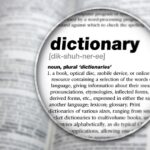Cleverness is a quality that often evokes admiration and respect. It embodies the art of solving problems, thinking outside the box, and approaching challenges with a sharp, innovative mind. Whether in daily life, business, or creative fields, being clever can set one apart from the crowd. In this article, we will explore the concept of cleverness, its characteristics, benefits, applications, and ways to cultivate it in our personal and professional lives.
Table of Contents
What Does it Mean to Be Clever?
Defining Cleverness
Cleverness goes beyond mere intelligence. While intelligence is associated with the capacity to learn and understand, cleverness is about applying knowledge effectively and finding innovative solutions to problems. It involves quick thinking, adaptability, and creativity.
Characteristics of a Clever Person
Clever individuals often display the following traits:
- Quick Thinking: They are able to process information rapidly and make swift decisions.
- Resourcefulness: Clever people make the best use of available resources, no matter how limited they may be.
- Creativity: They think unconventionally, coming up with unique approaches to common problems.
- Wit and Humor: Often, cleverness is accompanied by a sharp sense of humor or a witty way of interacting with others.
The Benefits of Being Clever
Problem Solving
One of the most significant benefits of being clever is the ability to solve problems efficiently. Clever people see solutions where others see roadblocks, allowing them to navigate complex situations with ease.
Innovation and Creativity
Cleverness is at the heart of innovation. The most groundbreaking inventions and creative works have come from individuals who dared to think differently. For example, the rise of technology giants like Apple and Tesla is attributed to the cleverness of their founders, Steve Jobs and Elon Musk, who saw opportunities to revolutionize entire industries.
Improved Social Skills
A clever sense of humor or the ability to offer witty commentary can make people more engaging and likable. This can be especially valuable in social settings, where clever people often attract attention and admiration.
Career Advantages
In the workplace, cleverness can set an individual apart. Employers value employees who can think independently, solve problems, and contribute innovative ideas to projects. Clever employees often become leaders and visionaries in their fields.
The Role of Cleverness in Different Fields
Cleverness in Business
In business, clever strategies are essential for growth and success. Entrepreneurs and leaders who display cleverness are more likely to take calculated risks, spot opportunities before others, and find innovative solutions to financial or operational challenges. For instance, clever marketing campaigns, like Old Spice’s “The Man Your Man Could Smell Like,” use humor and creative storytelling to resonate with audiences and boost sales.
Cleverness in Art and Literature
Artists, writers, and musicians often rely on their cleverness to create works that captivate audiences. Clever writing involves the use of wit, irony, and double meanings to engage readers or viewers. Literary classics like Shakespeare’s plays are filled with clever wordplay and insightful commentary on human nature.
Cleverness in Technology
In the tech world, being clever is synonymous with innovation. Inventors and developers often need to solve highly technical problems with creative solutions. The development of groundbreaking software and hardware requires clever thinking to push the boundaries of what is currently possible. The invention of the internet, the smartphone, and artificial intelligence are all testaments to human cleverness.
Cultivating Cleverness: Can It Be Learned?
Developing a Growth Mindset
The first step to becoming more clever is adopting a growth mindset. This means believing that your abilities can be developed through hard work, learning, and perseverance. Embracing challenges as opportunities to learn is a key trait of clever individuals.
Enhancing Problem-Solving Skills
Cleverness is often associated with exceptional problem-solving abilities. To improve in this area:
- Practice Lateral Thinking: Engage in exercises that challenge you to think in non-traditional ways, such as puzzles or brainteasers.
- Analyze Different Perspectives: Look at problems from various angles and consider multiple solutions before settling on one.
- Learn from Mistakes: Mistakes can be valuable learning tools. Clever people analyze their errors and use that information to improve future performance.
Fostering Creativity
Creativity is a crucial component of cleverness. Here’s how you can enhance your creative thinking:
- Explore New Experiences: Trying new activities and exposing yourself to different environments can spark new ideas.
- Brainstorm Freely: Dedicate time to brainstorming sessions without restrictions. The more ideas you generate, the more likely you are to come up with clever solutions.
- Collaborate with Others: Working with diverse teams or individuals can help you think outside your usual patterns and inspire clever ideas.
Building Your Knowledge Base
While cleverness is about how you apply what you know, having a broad knowledge base can provide more material to draw from. Reading widely, staying informed about current events, and learning new skills can enhance your ability to think cleverly.
Examples of Cleverness in Action
Historical Figures
- Leonardo da Vinci: Renowned for his clever inventions and artistic masterpieces, da Vinci epitomized the intersection of art, science, and ingenuity.
- Thomas Edison: Known for inventing the light bulb and many other devices, Edison exemplified cleverness through his relentless pursuit of innovation and practical solutions.
Modern Icons
- Elon Musk: The CEO of SpaceX and Tesla is famous for his clever solutions to complex engineering problems, from reusable rockets to electric vehicles.
- J.K. Rowling: The author of the Harry Potter series demonstrated cleverness through her intricate plotlines, creative character names, and engaging storytelling.
The Clever Use of Humor
The Power of Wit
Clever humor is an effective way to communicate, entertain, and build relationships. Witty remarks and observations can break the ice in social situations and help convey complex ideas in an accessible manner. Comedians, such as John Mulaney and Tina Fey, often use clever humor to captivate their audiences and deliver punchlines that resonate long after their performances end.
Using Humor in Everyday Life
Incorporating a touch of clever humor in your interactions can make conversations more enjoyable and engaging. Clever individuals often use humor to defuse tense situations, create memorable impressions, and foster connections with others.
Cleverness and Adaptability
Thinking on Your Feet
Adaptability is a sign of true cleverness. Being able to think on your feet and respond to changing circumstances shows mental agility and resilience. In a fast-paced world where situations change rapidly, adaptability is more valuable than ever.
Examples in Crisis Management
Clever problem-solving is especially vital in crises. Leaders who can quickly come up with solutions under pressure, such as during natural disasters or economic downturns, are often praised for their clever strategies and rapid decision-making.
How to Apply Cleverness in Your Life
Tips for Being More Clever Day-to-Day
- Challenge Your Routine: Shake up your daily activities to engage your brain in new ways.
- Play Strategy Games: Games like chess, Sudoku, or strategic board games can help sharpen your mental acuity.
- Be Curious: Never stop asking questions. Curiosity is the driving force behind cleverness.
Embracing Cleverness at Work
In the workplace, cleverness can be showcased by:
- Proposing New Ideas: Don’t be afraid to suggest innovative approaches to existing processes.
- Improvising Solutions: When unexpected problems arise, clever improvisation can be invaluable.
- Connecting Dots: Clever people often make connections between seemingly unrelated concepts, leading to breakthrough ideas.
Conclusion
Cleverness is a multifaceted trait that can elevate every aspect of life, from career success to social interactions. By developing problem-solving skills, fostering creativity, and embracing a mindset open to learning and experimentation, anyone can become cleverer. The benefits of clever thinking are vast, leading to more effective problem-solving, creative breakthroughs, and enriched personal and professional relationships. So, challenge yourself to think differently, be adaptable, and harness the power of cleverness in everything you do.


